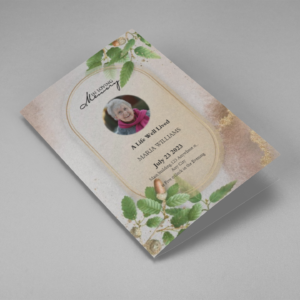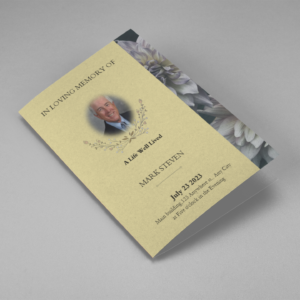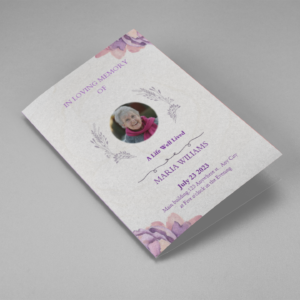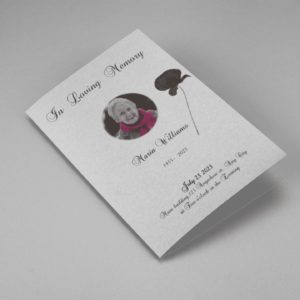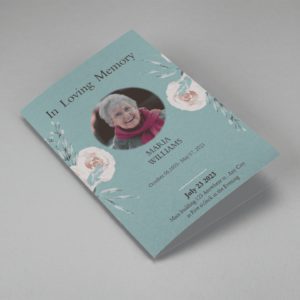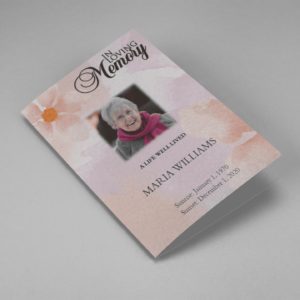Funeral professionals play a crucial role in guiding families through the difficult process of arranging a funeral and saying goodbye to a loved one. These dedicated individuals offer a range of services, ensuring that every detail is handled with care and respect. In this comprehensive guide, we will explore the various roles and responsibilities of funeral professionals, the importance of their services, and how to choose the right funeral professional for your needs.
The Role of Funeral Professionals
Funeral professionals, also known as funeral directors or morticians, are responsible for managing all aspects of the funeral process. Their duties typically include:
- Consultation and Planning: Meeting with the family to discuss their wishes and create a personalized funeral plan.
- Legal and Administrative Tasks: Handling necessary paperwork, including death certificates and permits.
- Preparation of the Deceased: Embalming, dressing, and cosmetically preparing the body for viewing.
- Coordination of Services: Arranging the funeral service, including the venue, officiant, and other necessary details.
- Transportation: Ensuring the safe and respectful transport of the deceased to the funeral home and final resting place.
- Support and Guidance: Providing emotional support and practical advice to grieving families.
Importance of Funeral Professionals
Funeral professionals offer more than just logistical support; they provide emotional and psychological comfort to families during one of the most challenging times of their lives. Here are some key reasons why their services are invaluable:
- Expertise and Experience: Funeral professionals have extensive knowledge and experience in handling all aspects of funeral planning, ensuring that every detail is taken care of.
- Emotional Support: They offer compassionate guidance and support, helping families navigate their grief and make informed decisions.
- Stress Relief: By managing the administrative and logistical tasks, funeral professionals allow families to focus on mourning and remembering their loved one.
- Personalization: They work with families to create personalized services that honor the unique life and legacy of the deceased.
Types of Funeral Services
Funeral professionals are adept at organizing various types of services to meet the diverse needs and preferences of families. These may include:
- Traditional Funerals: Involving a formal ceremony, viewing or visitation, and burial or cremation.
- Memorial Services: Held without the body present, often after cremation or burial.
- Graveside Services: Conducted at the cemetery, typically including the committal of the body.
- Celebrations of Life: Focused on celebrating the life of the deceased with personal stories, music, and tributes.
How to Choose a Funeral Professional
Selecting the right funeral professional is a crucial step in ensuring a meaningful and respectful farewell. Consider the following factors when making your decision:
- Reputation and Reviews: Research the funeral home’s reputation and read reviews from previous clients to gauge the quality of their services.
- Services Offered: Ensure that the funeral home provides the specific services you need, such as cremation, green burials, or customized memorials.
- Location: Choose a conveniently located funeral home to minimize travel and logistical challenges for family and friends.
- Cost: Request a detailed price list and compare costs between different providers to find one that fits your budget.
- Personal Connection: Meet with the funeral director to assess their empathy, professionalism, and willingness to accommodate your wishes.
Funeral Program Templates
-
Searching for a Oak Leaf With Gold Oval Frame Half Page Funeral Program that is easy to print and amass and has a cutting-edge look? The Oak Leaf With Gold Oval Frame Half Page Funeral Program is the Perfect decision because it measures 8.5”x 5.5”.
- No Limitation on Content, Edit anything
- Edit anytime – unlimited revisions even after purchased
- Get a printable PDF downloaded to get it printed on your own.
-
Searching for a Brown and White Classic Funeral Program Half Page Program that is easy to print and amass and has a cutting-edge look? The Brown and White Classic Funeral Program Half Page Program is the Perfect decision because it measures 8.5”x 5.5”.
- No Limitation on Content, Edit anything
- Edit anytime – unlimited revisions even after purchased
- Get a printable PDF downloaded to get it printed on your own.
-
Searching for a Purple Elegant Watercolor Half Page Funeral Program Template that is easy to print and amass and has a cutting-edge look? The Purple Elegant Watercolor Half Page Funeral Program Template is the Perfect decision because it measures 8.5”x 5.5”.
- No Limitation on Content, Edit anything
- Edit anytime – unlimited revisions even after purchased
- Get a printable PDF downloaded to get it printed on your own.
-
Searching for a Cream and Green Photo Obituary Half Page Program that is easy to print and amass and has a cutting-edge look? The Cream and Green Photo Obituary Half Page Program is the Perfect decision because it measures 8.5”x 5.5”.
- No Limitation on Content, Edit anything
- Edit anytime – unlimited revisions even after purchased
- Get a printable PDF downloaded to get it printed on your own.
-
Searching for a Cream Simple Elegant Photo Church Half Page Program that is easy to print and amass and has a cutting-edge look? The Cream Simple Elegant Photo Church Half Page Program is the Perfect decision because it measures 8.5”x 5.5”.
- No Limitation on Content, Edit anything
- Edit anytime – unlimited revisions even after purchased
- Get a printable PDF downloaded to get it printed on your own.
-
Searching for a Samovar Silver Half Page Funeral Program Template that is easy to print and amass and has a cutting-edge look? The Samovar Silver Half Page Funeral Program Template is the Perfect decision because it measures 8.5”x 5.5”.
- No Limitation on Content, Edit anything
- Edit anytime – unlimited revisions even after purchased
- Get a printable PDF downloaded to get it printed on your own.
-
Searching for an Elegant Beige Half Page Funeral Program Template that is easy to print and amass and has a cutting-edge look? The Elegant Beige Half-Page Funeral Program Template is the Perfect decision because it measures 8.5”x 5.5”.
- No Limitation on Content, Edit anything
- Edit anytime – unlimited revisions even after purchased
- Get a printable PDF downloaded to get it printed on your own.
-
Searching for a White Floral Pro Half Page Funeral Program Template that is easy to print and amass and has a cutting-edge look? White Floral Pro Half Page Funeral Program Template is the Perfect decision because it measures 8.5”x 5.5”.
- No Limitation on Content, Edit anything
- Edit anytime – unlimited revisions even after purchased
- Get a printable PDF downloaded to get it printed on your own.
-
Searching for a Grey and Burgundy Elegant Half Page Funeral Program Template that is easy to print and amass and has a cutting-edge look? Grey and Burgundy Elegant Half Page Funeral Program Template is the Perfect decision because it measures 8.5”x 5.5”.
- No Limitation on Content, Edit anything
- Edit anytime – unlimited revisions even after purchased
- Get a printable PDF downloaded to get it printed on your own.
-
Searching for a Soft Green and Grey Minimalist Floral Half Page Funeral Program Template that is easy to print and amass and has a cutting-edge look? Soft Green and Grey Minimalist Floral Half Page Funeral Program Template is the Perfect decision because it measures 8.5”x 5.5”.
- No Limitation on Content, Edit anything
- Edit anytime – unlimited revisions even after purchased
- Get a printable PDF downloaded to get it printed on your own.
-
Searching for a Gray Elegant Oval Frame Half Page Funeral Program Template that is easy to print and amass and has a cutting-edge look? Gray Elegant Oval Frame Half Page Funeral Program Template is the Perfect decision because it measures 8.5”x 5.5”.
- No Limitation on Content, Edit anything
- Edit anytime – unlimited revisions even after purchased
- Get a printable PDF downloaded to get it printed on your own.
-
Searching for a Blue Organic Minimal Half Page Funeral Program Template that is easy to print and amass and has a cutting-edge look? Blue Organic Minimal Half Page Funeral Program Template is the Perfect decision because it measures 8.5”x 5.5”.
- No Limitation on Content, Edit anything
- Edit anytime – unlimited revisions even after purchased
- Get a printable PDF downloaded to get it printed on your own.
-
Searching for a Pink and Orange Watercolour Half Page Funeral Program Template that is easy to print and amass and has a cutting-edge look? Pink and Orange Watercolour Half Page Funeral Program Template is the Perfect decision because it measures 8.5”x 5.5”.
- No Limitation on Content, Edit anything
- Edit anytime – unlimited revisions even after purchased
- Get a printable PDF downloaded to get it printed on your own.
-
Searching for a Pink Floral Paper Half Page Funeral Program Template that is easy to print and amass and has a cutting-edge look? Pink Floral Paper Half Page Funeral Program Template is the Perfect decision because it measures 8.5”x 5.5”.
- No Limitation on Content, Edit anything
- Edit anytime – unlimited revisions even after purchased
- Get a printable PDF downloaded to get it printed on your own.
Funeral Program Template - How to Videos
Frequently Asked Question On Funeral Professionals
What qualifications do funeral professionals have?
Funeral professionals typically hold a degree in mortuary science and are licensed by the state. They undergo extensive training in embalming, restorative art, and funeral service management.
Can funeral professionals help with pre-planning a funeral?
Yes, many funeral professionals offer pre-planning services, allowing individuals to arrange their own funerals in advance. This can alleviate stress on family members and ensure that personal wishes are honored.
What should I bring to the initial meeting with a funeral professional?
It is helpful to bring vital information about the deceased, such as their full name, date of birth, social security number, and any pre-arranged funeral plans. Additionally, bring a list of questions and any specific requests you may have.
Can funeral professionals accommodate cultural or religious customs?
Yes, experienced funeral professionals are typically knowledgeable about various cultural and religious customs and can tailor the services to meet these specific needs.


